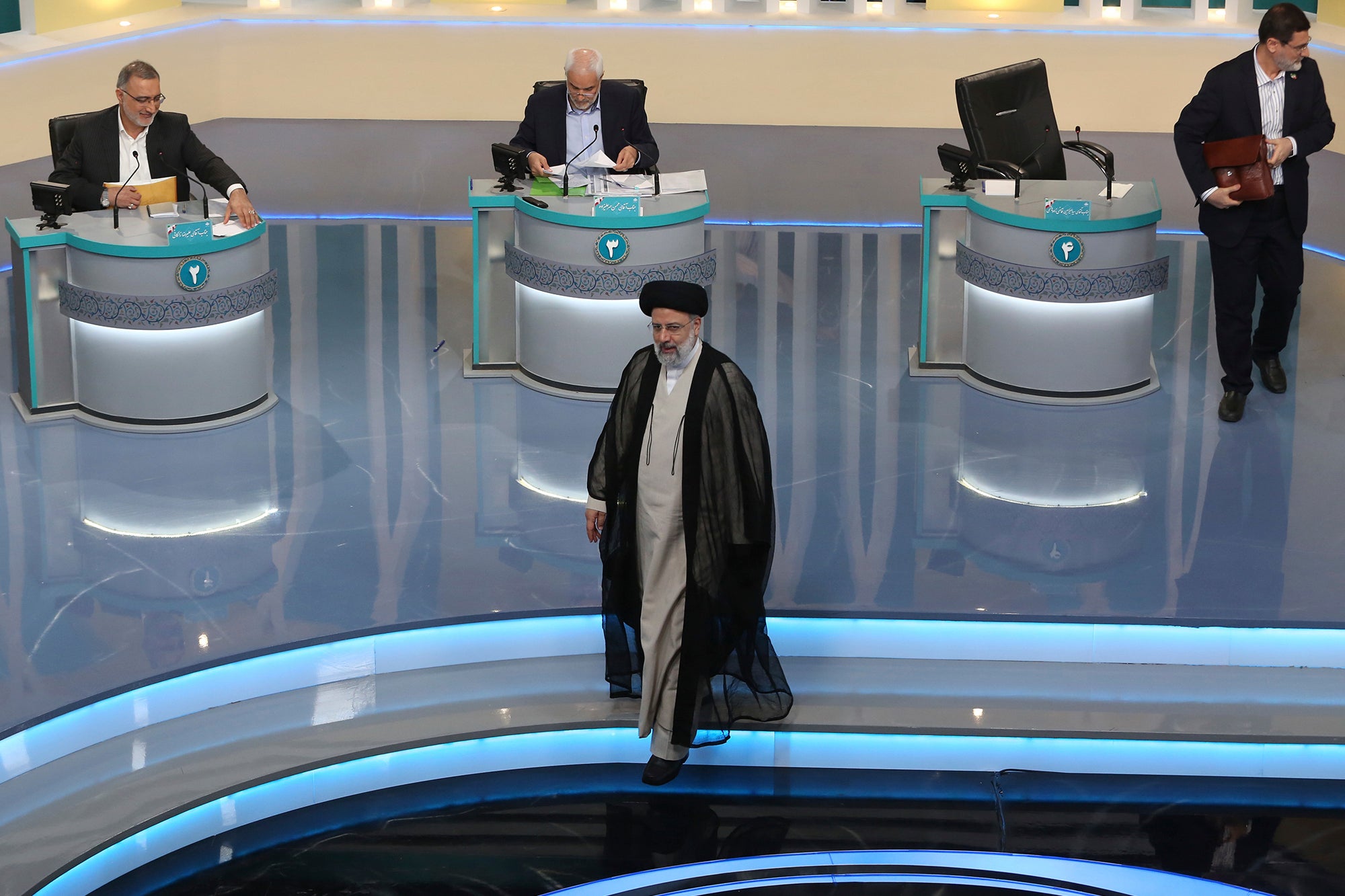Outgoing Iran president, a debate target, defends his record
Iran’s president has angrily defended himself after coming under harsh attack during a presidential election debate

Your support helps us to tell the story
From reproductive rights to climate change to Big Tech, The Independent is on the ground when the story is developing. Whether it's investigating the financials of Elon Musk's pro-Trump PAC or producing our latest documentary, 'The A Word', which shines a light on the American women fighting for reproductive rights, we know how important it is to parse out the facts from the messaging.
At such a critical moment in US history, we need reporters on the ground. Your donation allows us to keep sending journalists to speak to both sides of the story.
The Independent is trusted by Americans across the entire political spectrum. And unlike many other quality news outlets, we choose not to lock Americans out of our reporting and analysis with paywalls. We believe quality journalism should be available to everyone, paid for by those who can afford it.
Your support makes all the difference.Iran's president angrily defended himself Wednesday after coming under harsh attack during a presidential election debate the night before, saying his critics' “love for power causes memory loss.”
Hassan Rouhani the relatively moderate cleric who has been Iran's civilian leader for eight years, is now term limited from seeking office again. During Iran's second presidential debate Tuesday, hard-liners repeatedly mocked the Rouhani administration’s “hope” campaign that surrounded its now-tattered 2015 nuclear deal with world powers.
Rouhani made a point to target them during his televised Cabinet meeting, his tone moving between an angry attack to a mocking tone.
His signature nuclear deal, which saw Iran eager to limit its atomic program in exchange for sanctions relief, fell apart after then-President Donald Trump unilaterally withdrew America from the accord in 2018. That has worsened Iran's already-anemic economy by largely stopping its international oil sales, hiking inflation and weakening its rial currency.
“In the debates, it was clarified that only the administration suffers from problems and the parts (of government) are blameless” Rouhani said, his remarks likely targeting hard-line judiciary chief Ebrahim Raisi widely believed to be the contest's front-runner.
Rouhani went on to criticize hard-liners on women's rights and the censorship of the internet in Iran, two issues former Central Bank chief Abdolnasser Hemmati focused on Raisi during the three-hour debate. While Hemmati has tried to distance himself from Rouhani, he's widely perceived as the candidate representing the president's administration.
“Nobody dares to say that he supports blocking internet,” Rouhani mockingly said.
Rouhani went onto say that hard-liners, who for years criticized the nuclear deal, should be put on the spot about whether they want sanctions relief through a return to the accord.
“Say you do not want to return to the deal if you have such an idea,” he said. Raisi, a favorite of Supreme Leader Ayatollah Ali Khamenei on Tuesday discussed the need to “remove oppressive sanctions,” suggesting he’d back returning to the nuclear deal
The election comes amid tensions with the West as negotiations continue to try and resuscitate the nuclear deal.
Iranian authorities hope to boost turnout in the June 18 poll, held by officials as a sign of confidence in the theocracy since the country’s 1979 Islamic Revolution. The state-linked Iranian Student Polling Agency has projected a 38% turnout from the country’s 59 million eligible voters, which would be a historic low amid a lack of enthusiasm by voters and the coronavirus pandemic.